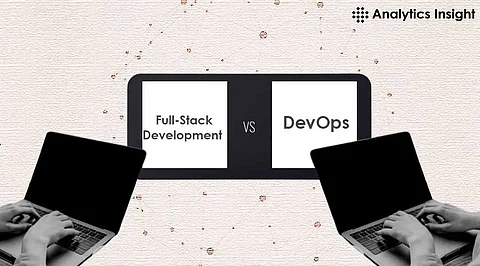

As technology continues to transform industries worldwide, two career paths have become especially prominent in the IT sector: Full-Stack Development and DevOps. While both are crucial to creating and maintaining high-quality software, they involve very different skill sets, responsibilities, and mindsets.
For those looking to embark on or pivot within a tech career, understanding the distinctions between Full-Stack Development and DevOps can be essential in finding the right fit. Here is a look at what each role entails and which path might be the right choice for you.
Full-stack development refers to the ability to work on both the front-end and back-end of web applications. Full-Stack Developers handle a wide range of tasks: designing user interfaces, coding business logic, managing databases, and even deploying applications. They are often seen as jack-of-all-trades developers, proficient in a variety of programming languages and tools.
Front-End Development: Building the user interface using HTML, CSS, JavaScript and frameworks like React or Angular.
Back-End Development: Creating and managing the server, application, and database. This often includes working with programming languages such as Python, Ruby, PHP, or Java and databases like SQL or NoSQL.
Deployment and Maintenance: Deploying applications, maintaining code, and optimizing for performance across different devices and browsers.
Full-Stack Developers typically need a strong understanding of both front-end and back-end technologies, including:
a. Programming Languages: JavaScript, Python, Ruby, Java, or PHP.
b. Frameworks and Libraries: React, Angular, Django, Express, or Node.js.
Full-stack development is ideal for individuals who enjoy building entire applications from the ground up and want to be involved in both the visual design and the structural logic. It offers a well-rounded experience in web development and appeals to those who prefer creative problem-solving and enjoy learning about multiple aspects of software development.
DevOps, short for Development and Operations, focuses on automating and streamlining the software delivery process to ensure faster, more efficient, and reliable releases. DevOps Engineers bridge the gap between development and IT operations, emphasizing collaboration, automation, and continuous integration and delivery (CI/CD).
Automation and Infrastructure Management: Automating code integration, testing, and deployment processes using tools like Jenkins, Docker, or Kubernetes.
Monitoring and Maintenance: Monitoring applications in production, identifying and resolving issues, and ensuring system reliability and performance.
Collaboration with Developers: Working closely with developers to streamline workflows and integrate new features without causing downtime.
DevOps Engineers typically focus on:
a. Automation Tools: Jenkins, Ansible, Chef, Puppet.
b. Containerization and Orchestration: Docker, Kubernetes.
DevOps is an excellent career path for those who enjoy improving processes, enhancing efficiency, and ensuring systems run smoothly. It’s a great fit for detail-oriented individuals who are passionate about automation, performance, and system reliability. Unlike Full-Stack Developers, DevOps Engineers are less focused on creating user-facing applications and more on enabling teams to deploy updates faster and manage systems at scale.
The choice between Full-Stack Development and DevOps ultimately depends on your interests, strengths, and career goals.
Choose Full-Stack Development if you’re passionate about creating web or mobile applications, enjoy working on both front and back-end and prefer a more creative, versatile role in software development. Full-Stack Developers tend to work in teams that are product-focused, making this role ideal for those who enjoy building and launching new features.
Choose DevOps if you’re interested in infrastructure, automation, and streamlining the software delivery pipeline. DevOps is perfect for detail-oriented professionals who prefer optimizing workflows and ensuring stability over creating new features. This role is essential in organizations that value speed, efficiency, and reliability in their development processes.
Both Full-Stack Development and DevOps offer exciting and rewarding career paths, each with its unique challenges and rewards. While Full-Stack Developers create user-focused applications, DevOps Engineers ensure these applications are deployed and run efficiently. The choice between them should align with your interests and skills. Whether you’re inclined toward building applications or improving the processes that deploy them, there’s a world of opportunity in both fields as technology continues to advance.
